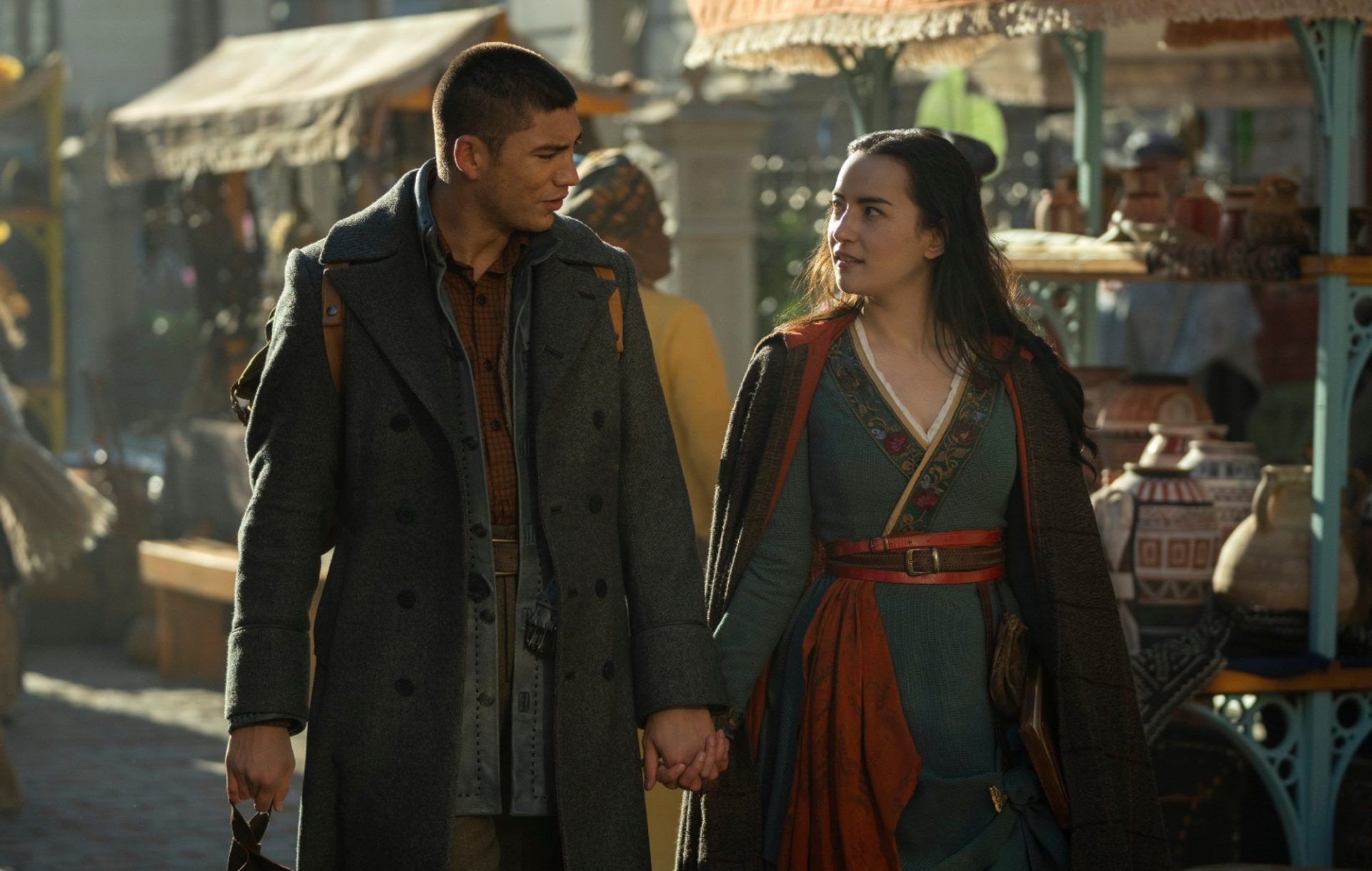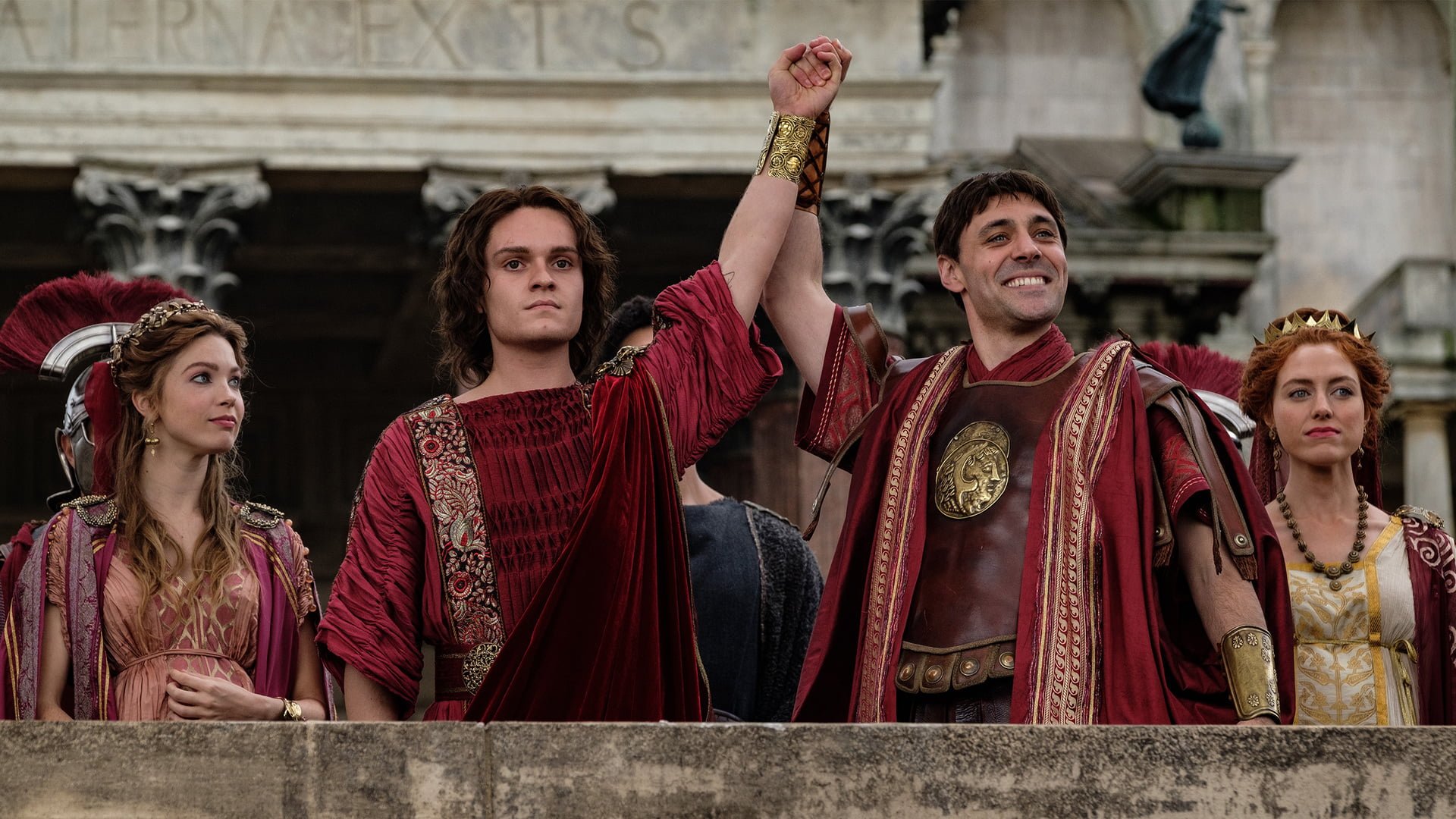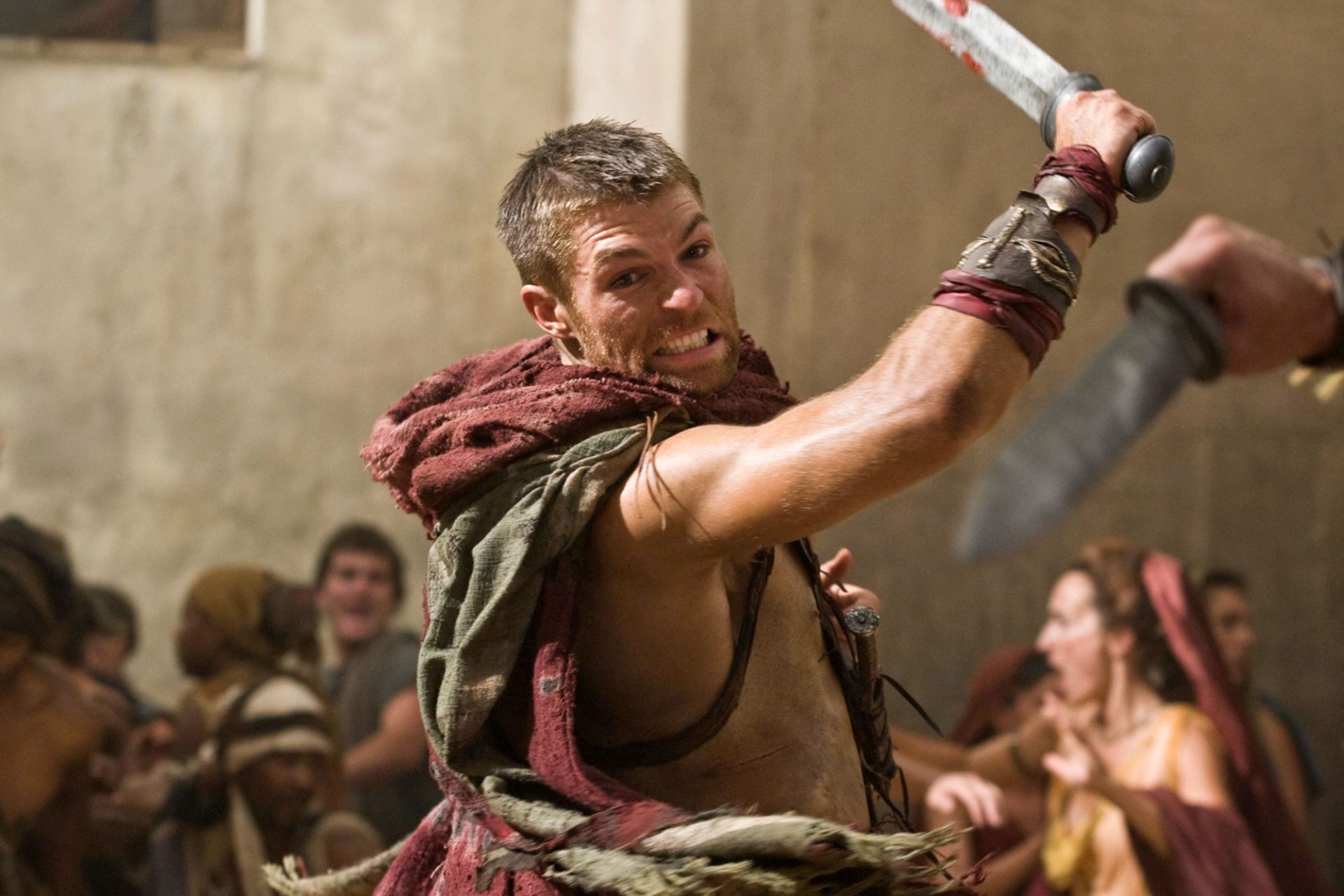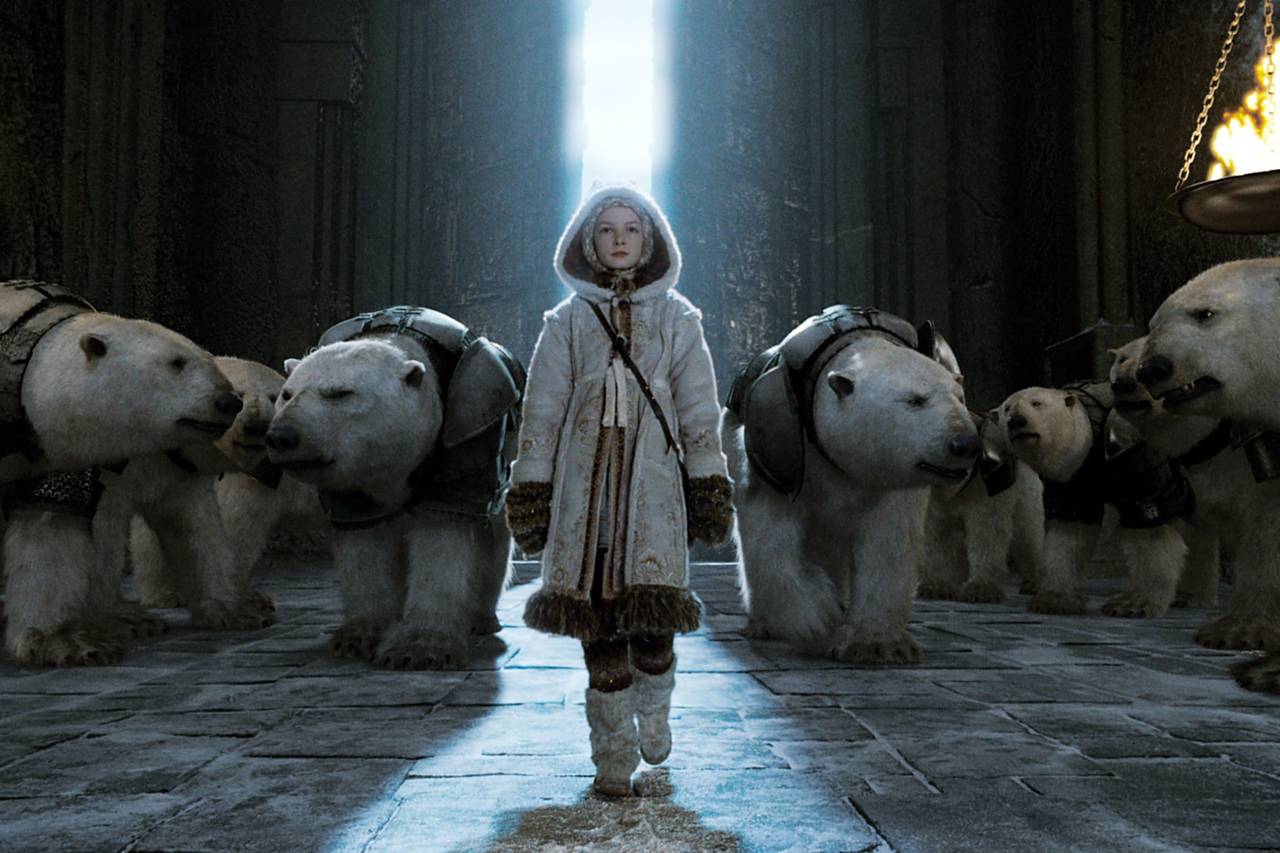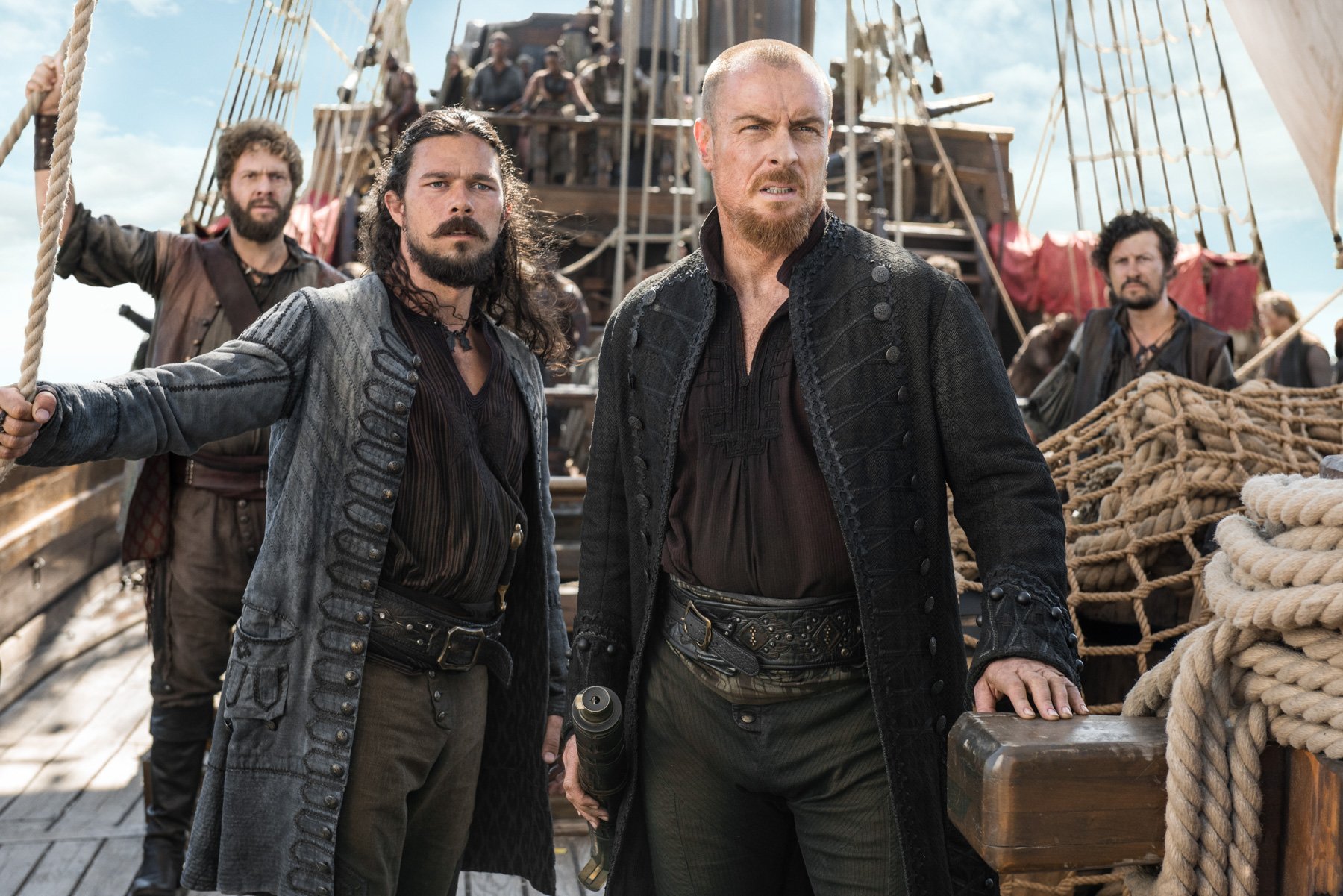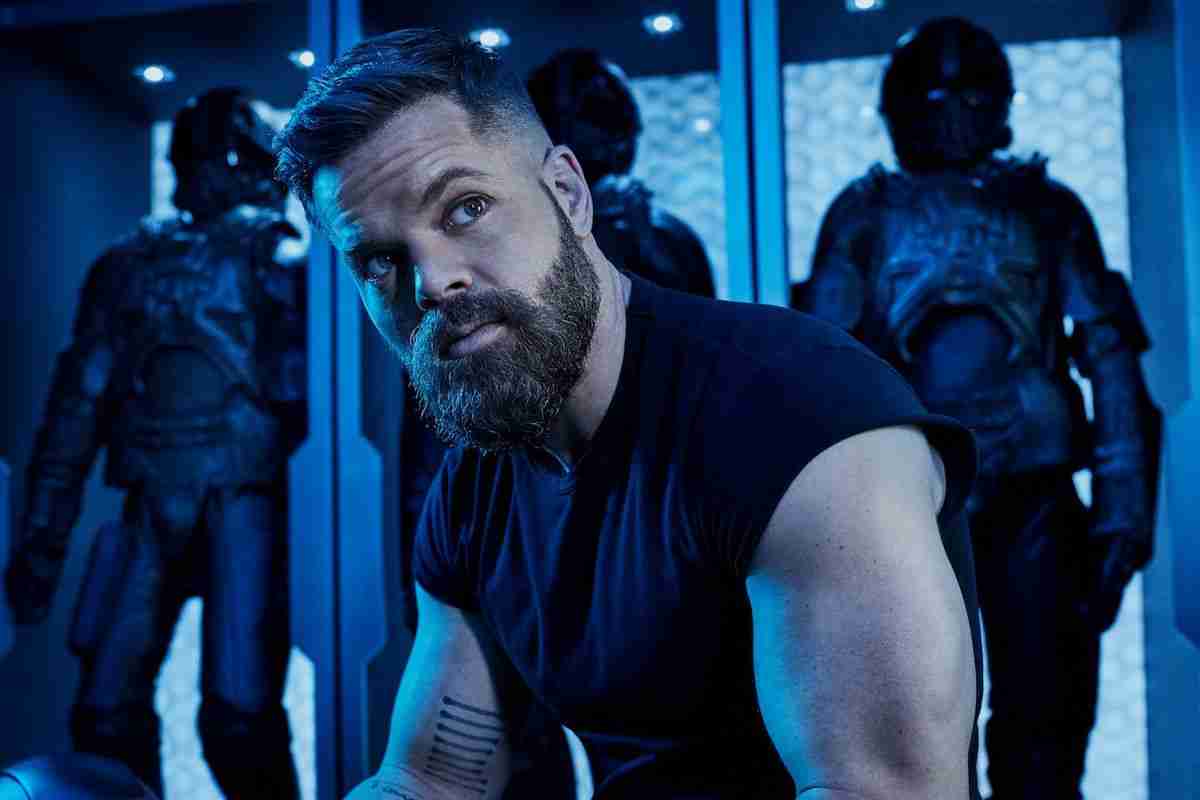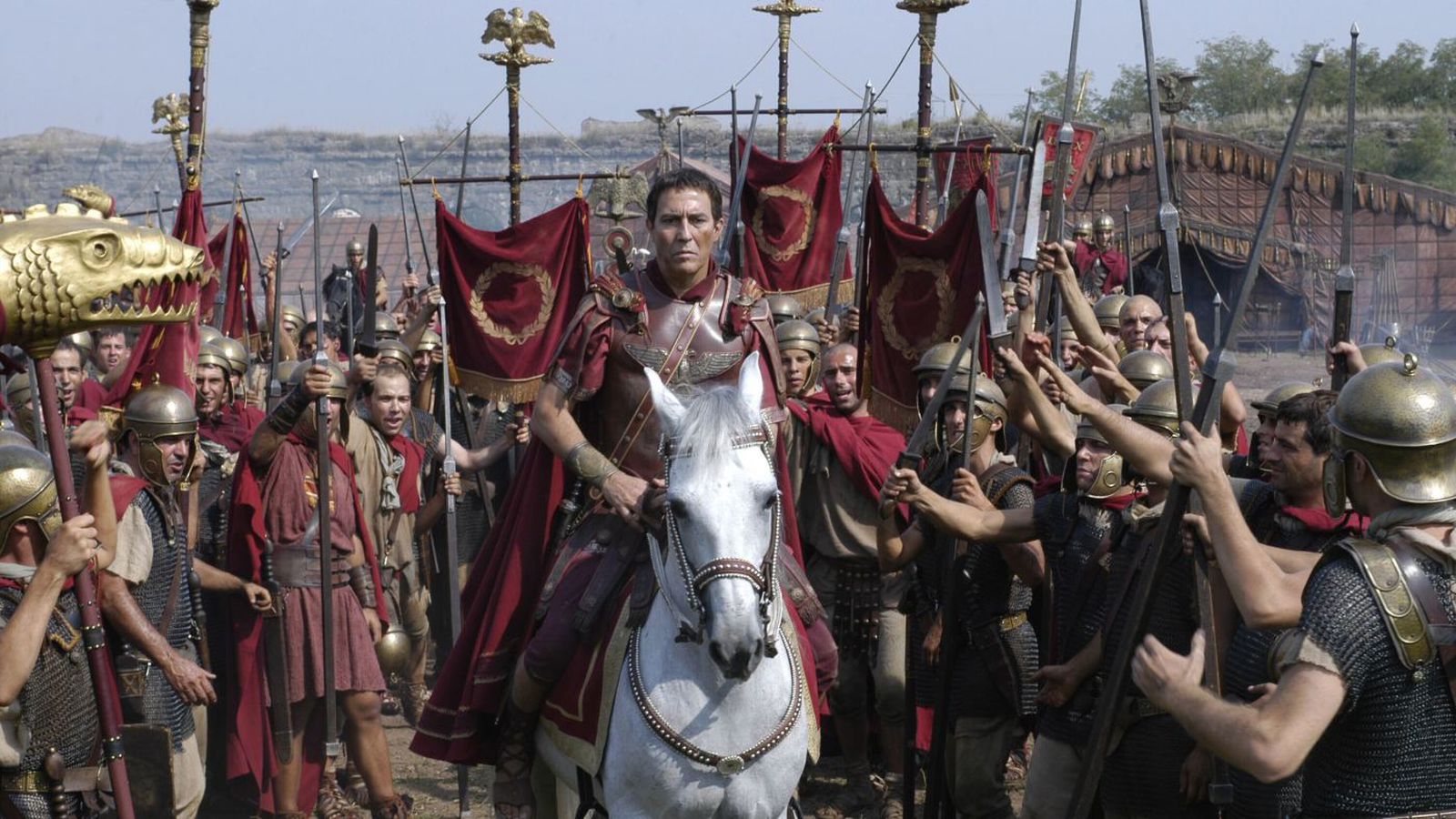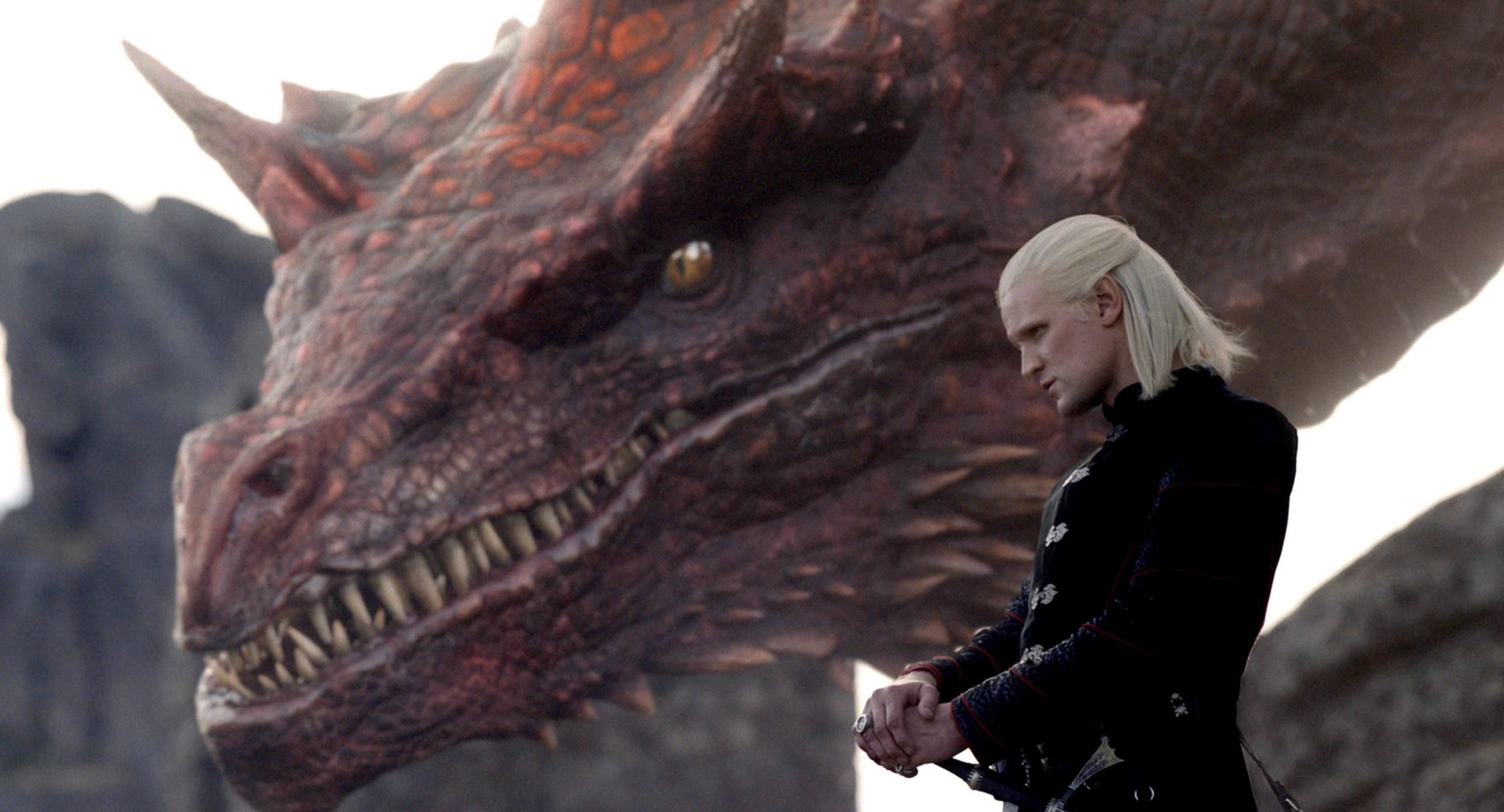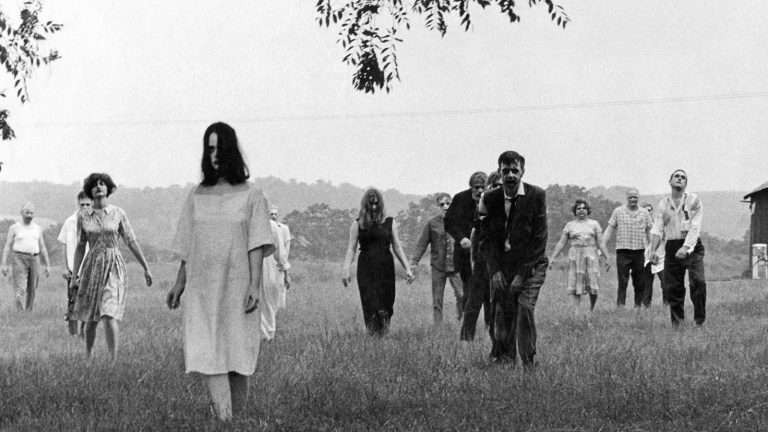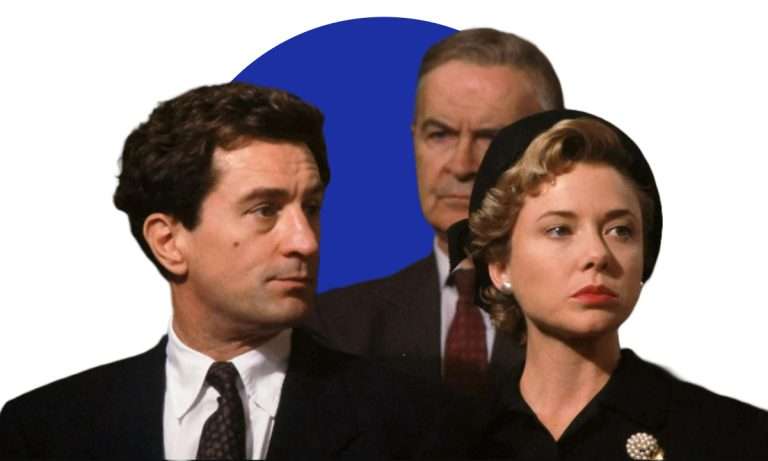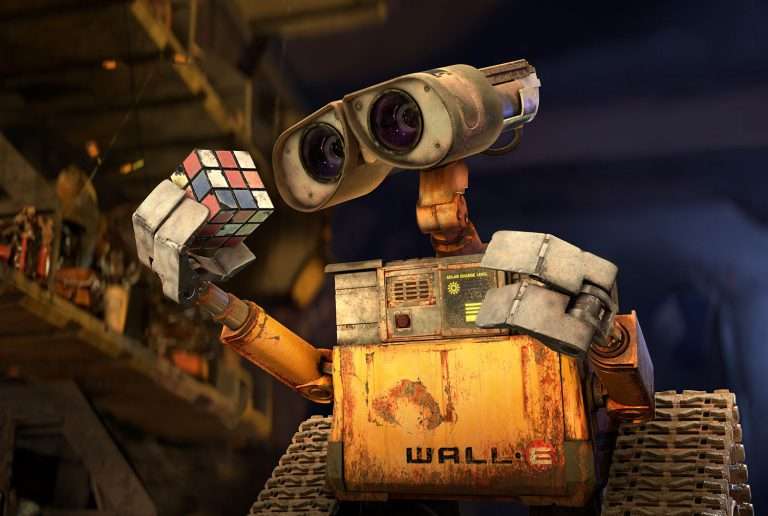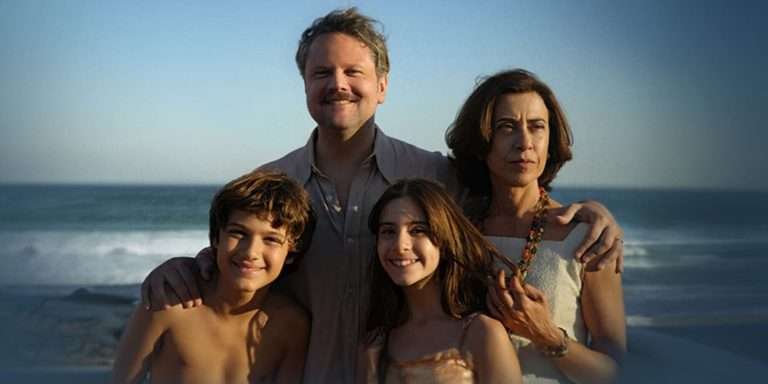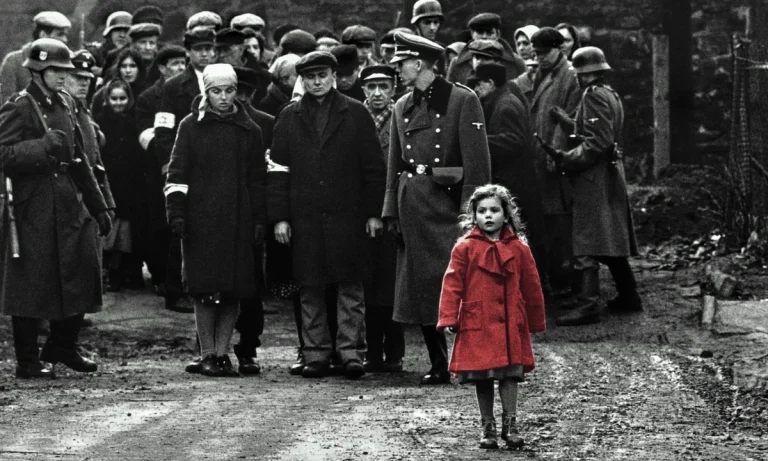10 Shows like Game of Thrones: “Game of Thrones” was one of those shows that became a cultural juggernaut. Only a few long-form television shows completely reinvented the “watercooler show.” Even if the final season was a rushed affair, almost impacting the entire show and its fandom to the point where its cultural cache almost dissipated, the show’s lasting impact on the fandom at large was unforgettable and, to some extent, difficult to reach.
It was an odd mix of unpredictable storylines, compelling characters, masterful political intrigue, and fantasy elements, whether dragons or the undead (the White Walkers), with a healthy dose of explicit sexual content and uncomfortable, visceral violence.
It will be a concerted but difficult effort to list ten shows like Game of Thrones because every studio and every network wants its own “Game of Thrones.” But because of the potpourri of genres and subversion of cliches at which Game of Thrones has been so adept, it’s hard to pinpoint exactly what a “Game of Thrones” comparable show looks like. Is it the “sexposition”? Is it political intrigue and intricate world-building? Or is it the action-packed battle sequences? The ten entries on this admittedly very personal list will try to hit almost all of them. Here’s hoping you enjoy them.
10. Shadow and Bone
Shadow and Bone, the newest entry on the block, follows Alina Starkov (Jessie Mei Li), a lowly mapmaker and cartographer who discovers she is a Grisha with the power to destroy the “fold,” a dark other dimension dividing the world in the Grishaverse that has plagued it for millennia. She comes under the attention of General Krigan, the general of the army, and a Shadow Summoner, who display an interest in her for mysterious reasons. But troubles are on the horizon for Alina as a group of mercenaries, the Crows, are hired to kidnap her.
Shadow and Bone is an example of creator Eric Hesserier recognizing that the material he is adapting is a cliche on a macro level. The chosen one-character arc of Alina is cliched and predictable. It is also filled with tropes reminiscent of young adult adaptations, be it romance or love triangles. So he loops in other stories and creates plot threads and characters that are infinitely more complex. As a result, there are enough compelling characters to follow, while the world-building and suspense of executing a mostly predictable main arc are impressive.
Shadow and Bone is one of those few adaptations that is an improvement over the source material and one of those shows whose potential is far more exciting the longer it goes along. And Hesserier and his writers weave in subplots and different plot threads without compromising the pace of the show, making it an effective binge.
9. Domina
Created by Simon Burke, Domina follows Livia Drusilla, the third wife of Augustus Caesar, a master manipulator who ensured that Augustus became emperor and stayed in power. The opening credits of Domina might be one of the more compelling credits of any television show, rivaling perhaps Game of Thrones itself. But unlike Game of Thrones opening credits, which signify the intricacy and vastness of the storytelling, Domina’s encapsulated the bloody history of the Roman Empire through the eyes of the women working behind the scenes.
The show also shares a cast member with “Game of Thrones,” namely Liam Cunningham (Davos Seaworth in Game of Thrones), who plays Livia Drussila’s father. The first two episodes set up young Livia’s origin story and her relationship with young Octavian (who later takes on the name Augustus). Still, it’s from the third episode, when Kasia Smutniak takes over the role of Livia with Matthew McNulty as Octavian, that the show becomes laser-focused.
It follows Livia as she juggles the macro-politics of the Roman Empire with the personal politics of retaining her position within Octavian’s household and navigating the issue of succession. It’s a veritable chessboard with numerous pieces at play, and it is a fascinating watch, especially in how the writers manage to weave in the fiction through the pockets of real events in history. It also helps that the acting is extremely potent at fleshing out generally unlikable characters.
All of these combinations make for a fascinating watch. The political intrigue with extremely compelling female protagonists would hearken back to Game of Thrones. The fact that women were extremely important in the running of government behind men might feel like a woke agenda to a lot of people disillusioned with Hollywood’s recent trend of agenda-driven content, and that would have been the case as well for this show, except history doesn’t lie, not really. And history gives Livia Drusilla far greater importance than some would like, for better or worse.
Related to Shows like Game of Thrones: Kingdom [Season 1] Netflix Review – A Binge-Worthy Horror Show Set in Medieval Korea
8. The Last Kingdom
Based on Bernard Cornwell’s “The Saxon Stories” series of novels, The Last Kingdom is a British historical fiction series that follows the years 866–878 during a time when the Great Heathen Army (the Vikings, to be exact) finally arrives in a divided Britain. The protagonist is a young Saxon named Uthred, who is adopted by the Viking king Ragnar when his parents also fall in battle against the Vikings. Years later, when Ragnar is assassinated by someone who holds a grudge against him for being exiled from the Viking lands, Uthred swears to avenge his father’s murder.
When he finds himself on his own as an adult, he is taken under the wing of English king Alfred (later Alfred the Great, played by David Dawson), who attempts to use the muscular Uhtred’s understanding of Viking society and tactics to drive the Vikings away and unite all the English kingdoms under one rule. But the show, a full five seasons worth, and a movie that finally seeks to conclude the story, releasing next month, focus on Uthred being forced to choose between his ancestral birthright and the community that had raised him and how his loyalties are being continuously tested.
The Last Kingdom falls into a list of television series comparable to Game of Thrones, with nary the fantasy elements but focusing very much on the action-packed set-pieces, political intrigue and strategizing, and interrelationship drama, along with extremely compelling characters. It also has stunning cinematography, and because the world is so grounded in the history of the timeline being explored, there is clarity in the storytelling that doesn’t allow any character to rise above the larger tapestry of the story the show is attempting to communicate. As a result, there is a strong balancing act, which resembles Game of Thrones’ almost flawless methodology of balancing numerous subplots in the first couple of seasons.
Also, Read: Game Of Thrones Season 8 Breakdown
7. Spartacus
Originally debuted months before Game of Thrones, Starz’s Spartacus, in its first couple of episodes, felt like a voluptuous, hornier cousin of Game of Thrones, with a high focus on nudity, explicit sex, and gratuitous violence, and a green screen resembling Zack Snyder’s 300. But the show’s rocky footsteps slowly begin to steady as the first season finds its footing and starts exploring the internal politics between the gladiators and their owner and the social politics of the times.
There is ample corny and flowery dialogue with an anachronistic bent in its swearing, resembling Game of Thrones during its best iterations. There is also a fascinating upstairs-downstairs dynamic occurring between the basement-dwelling gladiatorial slaves and their Roman masters living above, which makes for fascinating and compelling drama.
Unfortunately, the show hit a large stumbling block when it lost its primary actor, Andy Whitfield, to a real-life tragedy. Spartacus: Gods of the Arena, a six-episode prequel miniseries, was produced while Whitfield was recovering from non-Hodgkin’s lymphoma, which he tragically succumbed to a year and a half later.
Gods of the Arena explores the House of Batiatus before Spartacus arrives at their gladiatorial stable, and the champion Gannicus has been their star performer. While it is not as compelling at times as Blood and Sand (also known as the first season), it admirably manages to give context while simultaneously managing to maintain consistency in aesthetics and showcasing viscera and bodily fluids with gratuitous violence.
By the time the third season rolls around, Liam McIntyre replaces Whitfield as Spartacus. The full story of Spartacus is finally given room to breathe, unfurl, and flourish in all its violent, profane glory. It evolves from low-rent visceral junk to prestige television with a fulfilling character arc and plot development working in conjunction to depict history at its most violent and entertaining. Removing the fantasy elements of dragons, white walkers, etc., Spartacus has all the ingredients necessary for an entertaining world to fall into completely if you can stomach the Cormanian aesthetics for the first couple of episodes.
6. His Dark Materials
Philip Pullman’s series of novels is one of the more influential young adult fantasy novels of the 20th century. The story begins in an alternate world where all humans have animal companions called daemons, which are manifestations of the human soul. The series follows the life of a young girl named Lyra, who is an orphan living with scholars at Jordan College, Oxford. As in Pullman’s novel, Lyra discovers a dangerous secret that involves Lord Asriel Belacqua and Marisa Coulter. In her search for a missing friend, Lyra also uncovers a series of kidnappings and their link to a mysterious substance called Dust, which leads her on a journey of epic proportions and will lead to her crossing paths with a boy named Will.
As much as Game of Thrones owes much of its period-setting aesthetics to real medieval history, its fantastical elements are also an integral part of the show. And it isn’t afraid to use fantasy tropes to comment on real-world macro issues, such as religion and the dissonance between religion and faith, global warming as a slow encroaching inevitability for the planet, and so on.
Similarly, the world of “His Dark Materials” is ruled with an iron grip by a group called the Magisterium, which represses people’s ties to magic in that world and other worlds. Their appearances are eerily similar to those of priests in the Catholic Church. It’s not hard to imagine Pullman commenting on the closed-minded nature of organized religion against free will, which is especially relevant today. The show’s endgame is a war between closed-minded religious intransigence and flexibility in expression.
Like Game of Thrones, His Dark Materials isn’t afraid to delve into darker sensibilities in terms of violence and emotional trauma. The first season’s ending depends on a betrayal, which shatters young Lyra’s viewpoints about adults and forces her to grow up very quickly. It is heartbreaking and a cathartic ending in equal measure.
There are moments in Game of Thrones where younger characters go through unimaginable crucibles and come out on the other side stronger, seasoned, and more experienced in navigating the harsh world of Westeros. While not as sexually explicit as Game of Thrones (for obvious reasons), His Dark Materials is a must-watch for fantasy fans looking for compelling characters and an interesting juxtaposition of the modern world and fantasy.
Related to Shows Like Game of Thrones: Catherine Called Birdy (2022): Movie Review & Ending, Explained
5. Black Sails
Black Sails, created by Jonathan E. Steinberg and Robert Levine (The Old Man), was conceived to be a prequel to Robert Louis Stevenson’s 1883 novel Treasure Island. Set two decades before the events of Treasure Island, the fearsome Captain Flint brings in a young crew member named John Silver as the pirates fight for the survival of New Providence Island. The first season’s plot follows the hunt for the Spanish treasure galleon Urca de Lima. Subsequent seasons explore the treasure being stranded in Florida under guard by Spanish soldiers. In the background, Flint’s backstory is explored to understand why he took up piracy. The third and fourth seasons are about the war between pirates and the British Empire to control Providence Island.
Fans of Game of Thrones would remember the show sometimes delving into characters briefly taking to the high seas for travel. One memorable action set piece revolving around a ship in Game of Thrones would be the Season 2 finale, the Battle of Blackwater. While there aren’t magical weapons like “wildfire” or even dragons in the historical setting it takes place in, Black Sails is unique with its wonderful seafaring combat and fairly well-made action sequences.
But what is also fascinating about Black Sails is the political intrigue occurring between the different pirate factions and later between the pirate factions and the British Empire over control of Providence Island. Of course, you couple that with a smorgasbord of sexual content and violence, which were staples of shows on the Starz network during that period.
While the show might have started as a prequel to Treasure Island, a more-or-less recognizable IP, as the show finally winds down, it evolves into something far more potent, extending beyond its prequel trappings to something far more poignant and resonant in its own right. A show might start as a pulpy historical fiction adventure, but creators Steinberg and Levine allow the show to occupy a bigger space in the emotional quotient of storytelling.
4. The Expanse
In the near future, humanity has colonized the solar system and is divided into three major factions. Humanity being humanity, it hasn’t evolved into the utopian ideals that Star Trek used to embody. The three major factions are: The United Nations of Earth and Luna (the Moon), the Martian Congressional Republic of Mars, and the Outer Planets Alliance (OPA), a loose confederation of the people living in space stations near the asteroid belts of Jupiter and Saturn.
Humanity has colonized the further reaches of the solar system due to overpopulation on Earth. But even after that event, the galaxy is in a fragile state of the cold war between the three factions. In this tumultuous setting, a group of disparate protagonists—a high-ranking politician on Earth, a private detective in a space station on the belt, and the crew of a space freighter—become involved in a major conspiracy that causes huge ripple effects in the galaxy and subsequent other galaxies.
Often cited as “Game of Thrones in Space,” The Expanse might be the furthest from this list in terms of its fantastical setting. Even within its sci-fi trappings, however, it is unusually dense in plotting, with a large ensemble cast, compelling characters, and extremely compelling interactions, with shifting motivations resulting from unthinkable events threatening to engulf the entire galaxy.
Fans of world-building and characters with great complexity would find much to enjoy within The Expanse’s world. It also helps that the show is highly proficient at playing around with other genres, be it noir, a political thriller, a first-contact sci-fi movie, a disaster movie, or a war movie. Characters struggle with interpersonal conflicts while also trying to prevent the universe-altering event or interstellar war from occurring. Like Game of Thrones, The Expanse doesn’t hold hands with the viewer. It respects the intelligence of the viewer to get caught up in the events occurring in this grounded yet fantastical world.
3. Succession

Imagine the battle for the Iron Throne shifted to modern times and transferred to the battle for ownership of media conglomerate Waystar Royco. The old guard, led by Logan Roy, falls sick, which brings into question the titular succession for that throne. Backstabbing and a power struggle follow, which becomes more complicated when we realize that, like Hyman Roth in The Godfather, Part II, Logan Roy might not be open to the idea of succession simply because he believes he will outlive them all.
Another HBO show completely removed from the fantastical setting of Westeros with its dragons, white walkers, and knights of the realm, but the internal power struggles and family dysfunctionality share a similar mean streak of DNA with Game of Thrones. Swordfights and conquests are now replaced with verbal parrying and complicated wordplay with colorful and innovative insults. At the same time, characters converse in backrooms and delve into power plays to see who comes out on top, familial relationships being the least important trait in this war of succession.
It makes for a series of unlikable characters to follow but compelling television to watch with Shakespearean quality in its storytelling. The show’s writing and structure are powerful enough that it’s a joy to watch the cringe comedy in the responses of characters and as their comedy of errors blooms into catastrophic meltdowns.
Also, Read: The Best Films for Game of Thrones Fans This Fall
2. Rome
Rome, one of the first international co-productions between the UK, Italy, and the US, could be described as a “proto-Game of Thrones” in its approach to storytelling within a large period setting. The series is set during the 1st century BC, during the transition of Rome from republic to empire. While real-life historical figures feature as key characters in this sprawling cast, be it Julius Caesar, Mark Antony, Cleopatra, etc., the lead protagonists are two soldiers named Lucius Voreno and Titus Pullo, whose lives find themselves intertwined with key historical events.
It starts with the ascent of Julius Caesar in the senate, his rise and fall leading up to the infamous Ides of March when his assassination occurs. Against the backdrop, we also follow young Octavian, whose power struggle with Mark Antony follows the latter half of the season. The gorgeous production design, compelling characters, interesting character interactions, and maneuvering key moments of history stand out. It manages to keep viewers engaged even though history ultimately gives us the result.
While Season 2 largely feels more rushed than Season 1 because of the longer period of time the creators were forced to traverse in a singular season, Rome managed to strike a political balance between the ruling elite and the working class, which Game of Thrones is also adept at doing. However, Rome excelled at exploring the working class far more than Game of Thrones does in certain instances. Decadence and bacchanalia are present in ample amounts for fans of Game of Thrones searching for a similar replica of these moments. Still, they are also underscored by a surprising amount of intimacy in their quieter moments.
Related to Shows Like Game of Thrones: The Last Queen [2022]: ‘Venice’ Review – A Highly Engrossing Period Drama from Algiers
1. House of The Dragons
The most obvious and frankly most boring choice on the list is that of “shows like Game of Thrones,” because if a list is answering the query “shows like Game of Thrones,” it stands to reason that the closest answer would be the spinoff of the main show.
It doesn’t change the fact that House of the Dragon manages to hit almost all of the beats that made Game of Thrones so incandescently popular at its peak. The show chooses to focus on the political machinations and the war for succession, even as the story shifts decades before the events of the original show. It chooses to focus on Game of Thrones defining feature, the dragons, and hammers home their generosity and power by emphasizing the Targaryen legacy.
But at its core, House of the Dragon is a show dependent on striking a balance between big moments able to envelop the viewers on a visceral high and moments of quiet emotional poignancy. Characters like Daemon Targaryen become popular simply because of their unpredictability and the resultant penchant for violence. The relationship between Rhaenaerya and Allicent becomes harder to watch as it slowly degrades with the years catching up to them. Moreover, Rhaenaerya’s love for her father and her choice to maintain her father’s core values for the kingdom clash violently with the shifting machinations of the High Council and the world of House of the Dragon and Game of Thrones itself.
Even as the show bites off more than it can chew by utilizing time jumps and exploring a conflict that would stem and cause war generations in the making, the strength of Game of Thrones wasn’t in the large set-pieces or the violence in the battle sequences. During the build-up, the simmering tension reached a fever pitch as strands of different plot threads slowly converged to a definite endpoint. The journey had become more effective for Game of Thrones than the destination itself.
So far, House of the Dragon utilizes an inordinate amount of time jumps to its detriment, but at no point does it manage to offset the growing unease in the show as tensions within the Targaryen start to build definite factions, which finally reach a crescendo at the end of the first season. This is promising to be a wild ride reminiscent of Game of Thrones at its best, and that’s why, even with its evident flaws, House of the Dragon remains at the top of this list.

